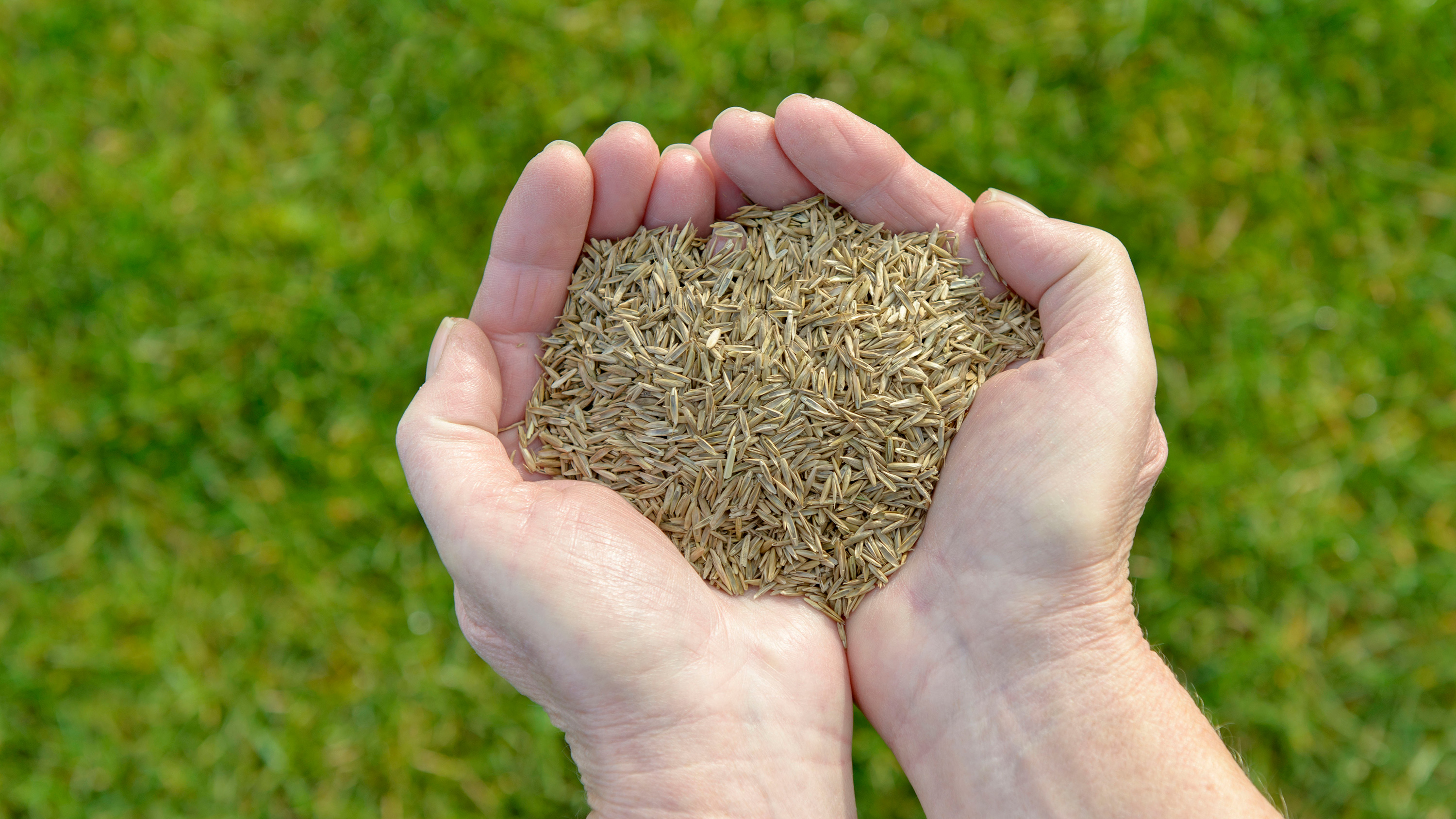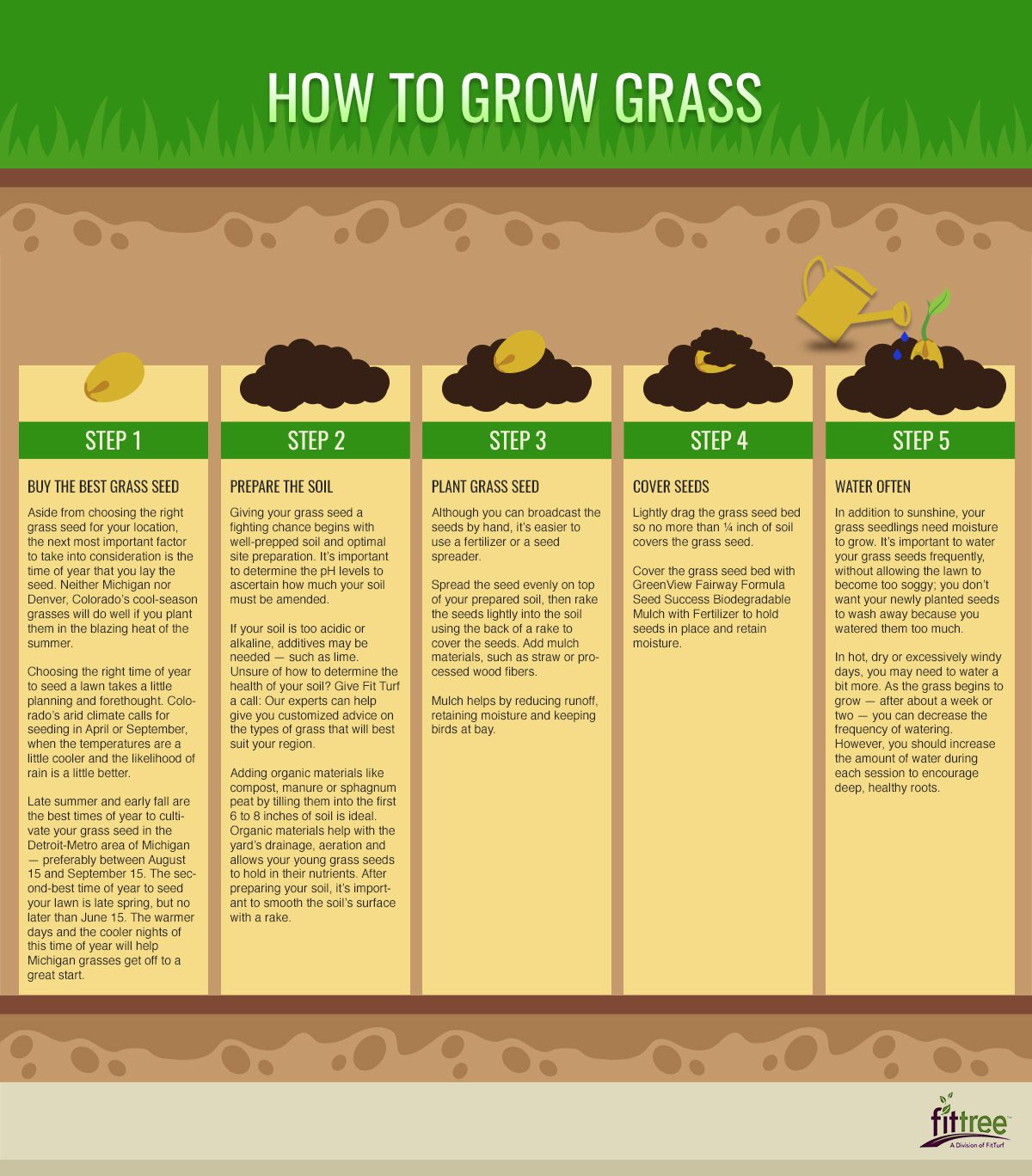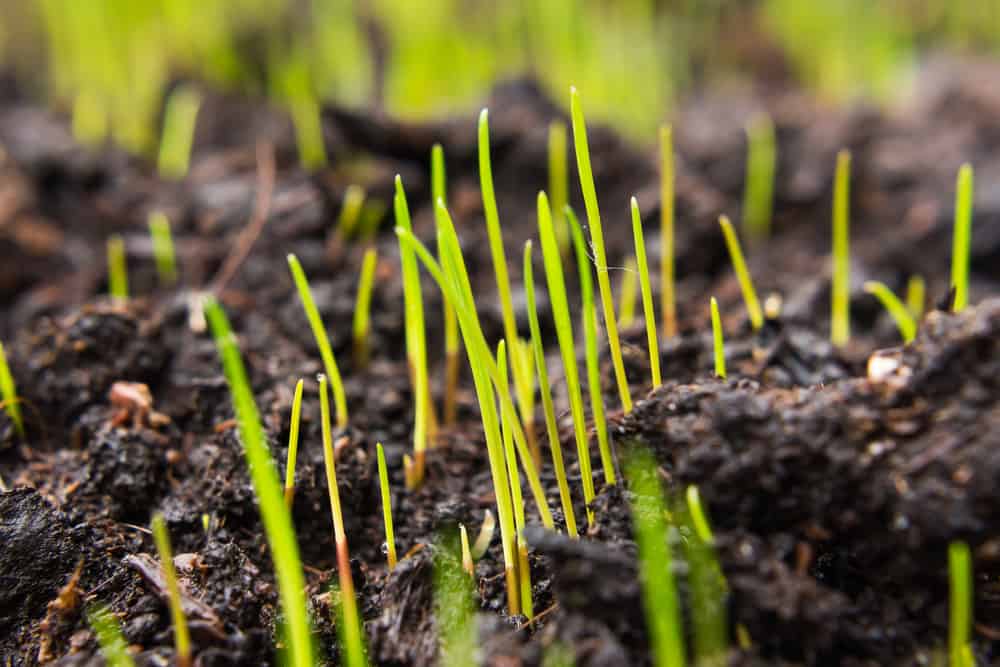The Ideal Conditions for Grass Seeds to Sprout
Grass seed germination is a complex process that requires specific conditions to thrive. Temperature, moisture, and light are the three essential factors that influence the germination process. Understanding how these factors interact with each other is crucial to create an environment that fosters healthy seed growth. For instance, most grass seeds germinate best in temperatures between 65°F and 85°F (18°C and 30°C), with some species requiring cooler or warmer conditions. Moisture is also critical, as seeds need consistent and adequate water supply to break dormancy. Finally, light exposure can affect seed germination, with some species requiring direct sunlight while others prefer partial shade. By controlling these factors, you can create an ideal environment for your grass seeds to sprout, ultimately answering the question of how long do grass seeds take to sprout. By providing optimal conditions, you can increase the chances of successful germination and set your lawn up for long-term success.
Understanding the Different Types of Grass Seeds
When it comes to grass seed germination, understanding the different types of grass seeds is crucial. There are two main categories of grass seeds: cool-season and warm-season grasses. Cool-season grasses, such as Kentucky bluegrass and perennial ryegrass, thrive in temperatures between 40°F and 75°F (4°C and 24°C) and typically germinate faster than warm-season grasses. Warm-season grasses, such as Bermudagrass and zoysiagrass, prefer temperatures above 75°F (24°C) and may take longer to germinate. Other popular grass seed varieties include tall fescue, fine fescue, and buffalo grass. Each type of grass seed has its unique characteristics, growth habits, and germination rates, making it essential to choose the right type for your specific climate and lawn conditions. By selecting the appropriate grass seed type, you can increase the chances of successful germination and create a lush, healthy lawn. This understanding can also help you answer the question of how long do grass seeds take to sprout, as different types of grasses have varying germination times.
How to Prepare the Soil for Grass Seed Germination
Preparing the soil is a critical step in the grass seed germination process. A well-prepared soil bed can significantly impact the success of germination and the overall health of the lawn. To create an ideal environment for germination, it’s essential to remove any debris, rocks, or weeds that may be present in the soil. This can be done by raking the soil or using a tiller to loosen the top layer. Next, loosen the soil to a depth of 8-10 inches to allow the roots of the new grass to grow freely. Adding fertilizers or amendments can also help improve soil quality and provide essential nutrients for the germinating seeds. A soil test can help determine the pH level and nutrient content of the soil, allowing for targeted amendments to be made. By taking the time to properly prepare the soil, you can increase the chances of successful germination and set your lawn up for long-term success, ultimately answering the question of how long do grass seeds take to sprout. A well-prepared soil can reduce the germination time and promote healthy growth.
The Role of Water in Grass Seed Germination
Water plays a crucial role in the grass seed germination process. Proper watering is essential to ensure that the seeds receive the necessary moisture to break dormancy and begin growing. The frequency and amount of water required will depend on the specific type of grass seed, as well as the climate and soil conditions. As a general rule, the soil should be kept consistently moist during the germination period, but not waterlogged. Overwatering can be detrimental to germination, as it can cause the seeds to rot or wash away. On the other hand, underwatering can slow down the germination process, leading to a longer timeframe for grass seeds to sprout. It’s essential to strike a balance and provide the right amount of moisture to support healthy germination. A good rule of thumb is to water lightly but frequently, keeping the top 1-2 inches of soil moist. By providing the right amount of water, you can create an ideal environment for germination and set your lawn up for long-term success.
The Average Timeframe for Grass Seeds to Sprout
The timeframe for grass seeds to germinate can vary depending on the type of grass, weather conditions, and soil quality. On average, it can take anywhere from 7 to 30 days for grass seeds to sprout. Cool-season grasses, such as Kentucky bluegrass and perennial ryegrass, typically germinate within 7-14 days, while warm-season grasses, like Bermudagrass and zoysiagrass, can take 14-30 days. It’s essential to understand that how long do grass seeds take to sprout is influenced by various factors, including soil temperature, moisture, and light. By providing optimal conditions, you can encourage healthy germination and reduce the timeframe for grass seeds to sprout. For example, maintaining a soil temperature between 65-75°F (18-24°C) can promote faster germination. Additionally, ensuring adequate moisture and light can also support healthy growth. By understanding the average timeframe for grass seeds to germinate, you can plan and prepare your lawn for successful growth.
Factors That Can Affect Grass Seed Germination Time
Several factors can influence how long do grass seeds take to sprout, and understanding these factors is crucial for successful germination. Weather conditions, such as temperature, humidity, and light, play a significant role in grass seed germination. For example, extreme temperatures, either hot or cold, can slow down or even prevent germination. Soil quality is another critical factor, as it affects the availability of water, nutrients, and oxygen to the seeds. Poor soil quality can lead to delayed or failed germination. The quality of the grass seeds themselves is also a significant factor, as high-quality seeds are more likely to germinate quickly and successfully. Additionally, factors such as soil compaction, poor drainage, and weed competition can also impact grass seed germination time. By understanding these factors, you can take steps to optimize the germination process and ensure healthy growth. For instance, using a soil thermometer to monitor soil temperature, selecting high-quality seeds, and controlling weeds can all help to promote faster and more successful germination.
Tips for Promoting Healthy Grass Seed Germination
To ensure successful germination, it’s essential to provide optimal conditions for your grass seeds. Maintaining optimal soil temperature is crucial, as it affects the rate of germination. For most grass species, a soil temperature between 65-75°F (18-24°C) is ideal. Controlling weeds is also vital, as they can compete with your grass seeds for water, nutrients, and light. Use a pre-emergent herbicide or manually remove weeds to create a favorable environment for germination. Adequate light is also essential, as it promotes healthy growth and development. Ensure your grass seeds receive sufficient light, but avoid direct sunlight, which can cause overheating. Additionally, maintaining consistent moisture levels is critical, as it helps to prevent washing away or drying out of the seeds. By following these tips, you can create an ideal environment for your grass seeds to germinate, ultimately leading to a lush and healthy lawn. Remember, understanding how long do grass seeds take to sprout is crucial in planning and preparing your lawn for successful growth.
Common Mistakes to Avoid When Germinating Grass Seeds
When it comes to germinating grass seeds, there are several common mistakes that can hinder the process. One of the most critical mistakes is sowing seeds too deeply. Grass seeds require adequate light to germinate, and sowing them too deeply can prevent them from receiving sufficient light. Another common mistake is not providing enough moisture. Grass seeds need consistent moisture to germinate, and a lack of water can cause them to dry out and fail to sprout. Overwatering is also a common mistake, as it can cause the seeds to rot or wash away. Additionally, failing to prepare the soil properly can also hinder germination. This includes not removing debris, not loosening the soil, and not adding necessary fertilizers or amendments. By avoiding these common mistakes, you can increase the chances of successful germination and ensure that your grass seeds take to sprout within the average timeframe. Remember, understanding how long do grass seeds take to sprout is crucial in planning and preparing your lawn for successful growth. By being aware of these common mistakes, you can take steps to promote healthy germination and achieve a lush and thriving lawn.







